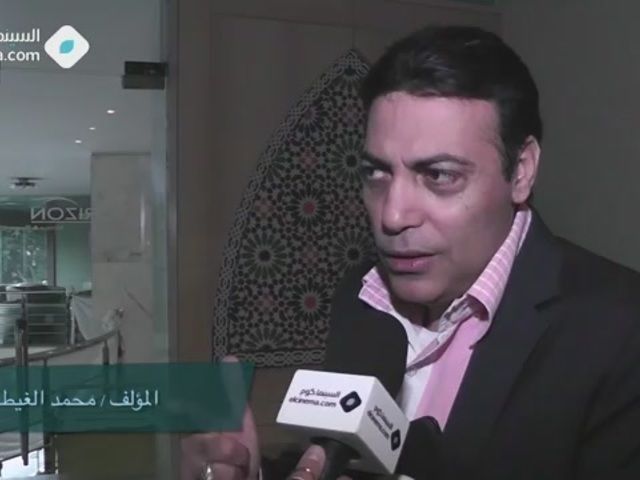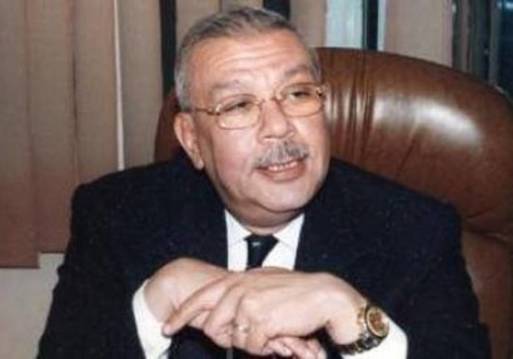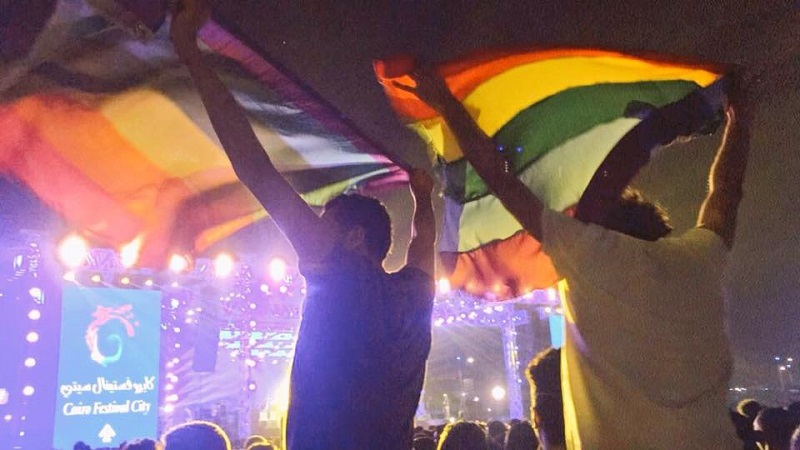
Reverberations from a controversial pop concert are continuing in Egypt, more than a year after the event. It was in September 2017 that a performance by the Lebanese band, Mashrou' Leila, in Cairo triggered a moral panic. The band's lead singer is openly gay and several fans in the audience waved rainbow flags to show their support.
This flag-waving was "an act of moral terrorism" according to a senior official at al-Azhar, Egypt's highest Islamic authority, and several arrests followed.
The Syndicate of Musical Professions – a government-linked body tasked with suppressing "abnormal" kinds of music – said future performances in Egypt by Mashrou' Leila would be banned, and the Coptic Church announced plans for a conference entitled "The Volcano of Homosexuality" where priests would help people towards a "speedy recovery" from homosexuality.
In the concert's aftermath the Supreme Council for Media Regulation – a body whose members are hand-picked by President Sisi – also decreed that gay people must not appear in print or audio or visual media "except in recognition and acknowledgment of their misconduct".
On Sunday that edict claimed its first casualty when Mohamed al-Gheity, a presenter on the privately owned LTC television channel, was fined and sentenced to a year in jail for interviewing an unidentified man who claimed to be a gay sex worker.

The case against Gheity was initiated by a well-known busybody and "morality" campaigner called Samir Sabry. Here's how he was described in a New York Times article last year:
“Mr Sabry, a portly 67-year-old lawyer, is one of the most prolific litigators in a country where the law allows one citizen to press charges against another for vague crimes like immorality and 'insulting' the nation. While it falls to a government prosecutor to decide whether to pursue such cases, and many are dismissed as frivolous, the successes have stifled free speech, hobbled the arts and even swayed national politics.
“A tireless vigilante who wields the law like a cudgel to enforce his prickly, often paranoid, brand of Egyptian nationalism, Mr Sabry claims to have filed more than 2,700 such public interest lawsuits in the past 40 years, often firing off several in a day. His legal darts have targeted actors, clerics, politicians and even belly dancers, and may play a decisive role in the next presidential election.”
TV presenter Mohamed al-Gheity, meanwhile, is no supporter of gay rights. He has previously made homophobic and sexist remarks, and his interview with the allegedly gay man was far from sympathetic. According to one person who watched it, the purpose was to condemn, mock and express disgust.
On that basis it might seem that the interview fell within the rules laid down by the Supreme Council for Media Regulation which allows gay people to appear so long as it is "in recognition and acknowledgment of their misconduct".
Nevertheless, Sabry claimed the interview promoted homosexuality because it included discussion about sex work which, according to al-Ahram newspaper, suggested there were "financial gains and advantages to attain as a result of practising homosexuality".


 RSS Feed
RSS Feed
